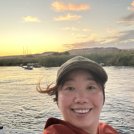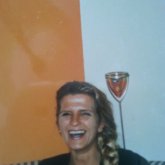PhD position on future radio systems: Integrated sensing/communication in future 6G/Wi-Fi networks with use cases of remote health monitoring
This PhD position is embedded in the EU Horizon 2023 Marie Sklodowska-Curie Doctoral Network (MSCA DN) SMARTTEST project, hosted by the RS-group (faculty of EEMCS) at University of Twente, Enschede, the Netherlands. This position is based on Doctoral Candidate 3 (DC03) within the project.
This position focuses on future radio systems that can simultaneously communicate to user equipment and sense the surrounding environment as well as the presenting human. The integrated sensing and communication (ISAC) system can be designed at varying integration levels, and we focus on the design of ISAC systems for specific use cases of remote health monitoring.
The future ISAC system for remote health monitoring could operate in the ‘6G’ bands, the midband FR3 (7-24 GHz); could also incorporate multi-standard like Wi-Fi, 5G-A and 6G together; will efficiently use the spectrum, spatial, and power resources to effectively perform the dual functionalities in our remote health monitoring use cases.
The research topic is not limited to one system, but could also consider scaling up, with modular and distributed ISAC systems for communicating, sensing and comprehending. The position will focus on hardware architecture and signal processing techniques.
The following link will redirect you to the general website of SMARTTEST. More info about their recruitment process and/or details of this position can be found here.
Information and application
Are you interested in this position? Please send your application via the 'Apply now' button below before May 31, 2025, and include:
- A cover letter (maximum 2 pages A4), emphasizing your specific interest, qualifications, and motivations to apply for this position.
- A Curriculum Vitae, including a list of all courses attended and grades obtained, and, if applicable, a list of publications and references.
- An IELTS-test, Internet TOEFL test (TOEFL-iBT), or a Cambridge CAE-C (CPE). Applicants with a non-Dutch qualification and who have not had secondary and tertiary education in English can only be admitted with an IELTS-test showing a total band score of at least 6.5, internet. TOEFL test (TOEFL-iBT) showing a score of at least 90, or a Cambridge CAE-C (CPE).
While applying, ensure to select your first choice as DC03 and note that this recruitment is only valid for DC03 at University of Twente, Netherlands. No second or third choice is required.
For more information regarding these positions, you are welcome to contact Dr. Yang Miao via y.miao@utwente.nl or review the website of SMARTTEST
About the organisation
The faculty of Electrical Engineering, Mathematics and Computer Science (EEMCS) uses mathematics, electronics and computer technology to contribute to the development of Information and Communication Technology (ICT). With ICT present in almost every device and product we use nowadays, we embrace our role as contributors to a broad range of societal activities and as pioneers of tomorrow's digital society. As part of a people-first tech university that aims to shape society, individuals and connections, our faculty works together intensively with industrial partners and researchers in the Netherlands and abroad, and conducts extensive research for external commissioning parties and funders. Our research has a high profile both in the Netherlands and internationally. It has been accommodated in three multidisciplinary UT research institutes: Mesa+ Institute, TechMed Centre and Digital Society Institute.



